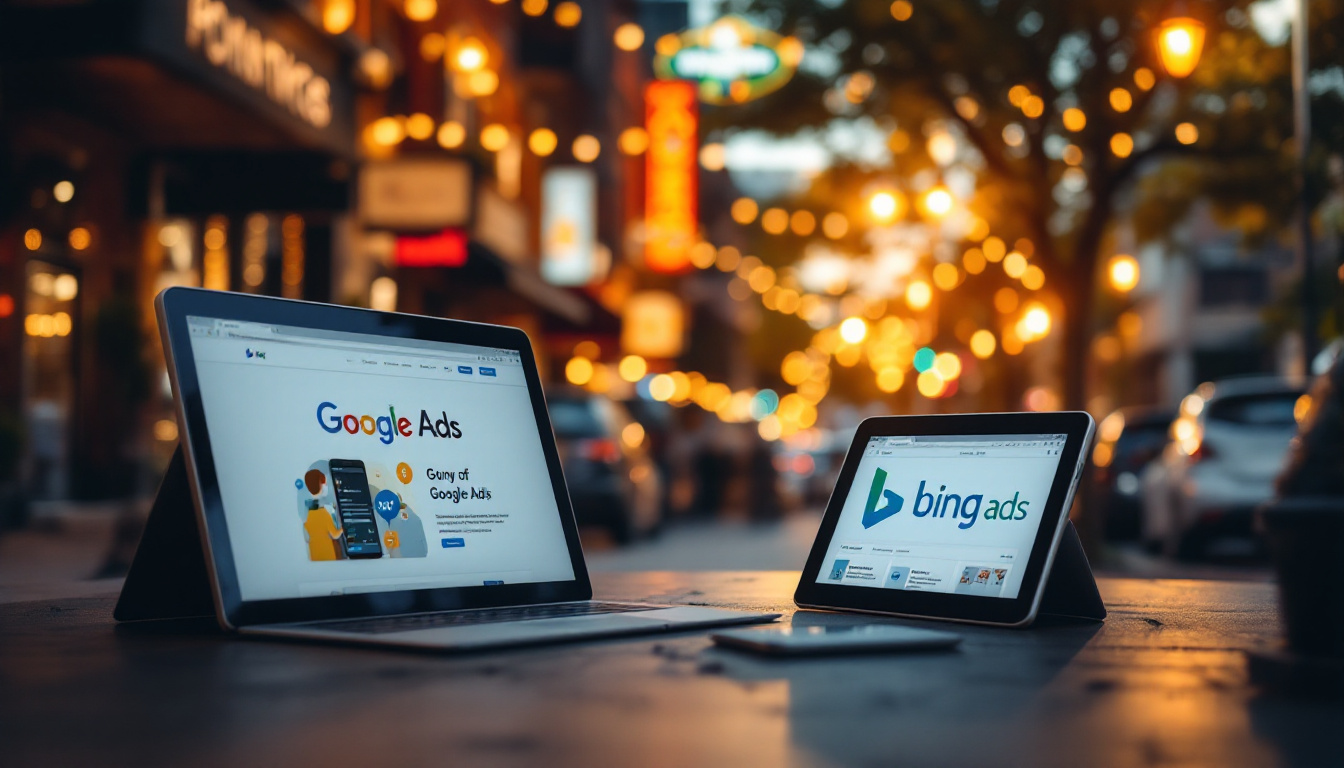Top PPC FAQs Answered for Oklahoma City, OK Businesses

Pay-per-click (PPC) advertising has become a cornerstone of modern digital marketing. For businesses in Oklahoma City, OK, understanding the fundamentals of PPC is vital for success in a competitive marketplace. This article answers some of the most frequently asked questions about PPC to help local businesses navigate this essential marketing strategy.
What is PPC and how does it work?
PPC, or pay-per-click, is an online advertising model where advertisers pay each time a user clicks on one of their ads. This model is most commonly associated with search engines like Google, where ads appear on the search results page when specific keywords are queried.
The process begins with advertisers selecting relevant keywords that potential customers are likely to use when searching for their products or services. Once the keywords are chosen, ads are created and bid amounts are set. Advertisers only incur costs when their ads receive clicks, which differentiates PPC from traditional advertising where costs are incurred regardless of engagement. This efficiency makes PPC an attractive option for businesses of all sizes, allowing them to allocate their budgets more effectively and measure their return on investment (ROI) with precision.
Moreover, PPC campaigns can be finely tuned to target specific demographics, locations, and even times of day, ensuring that the ads reach the most relevant audience. This level of customization not only increases the likelihood of clicks but also enhances the overall effectiveness of the advertising strategy. Advertisers can analyze performance metrics in real-time, enabling them to make informed adjustments to their campaigns to optimize results.
How are PPC ads displayed?
PPC ads are usually displayed at the top or bottom of search engine results pages (SERPs) and can also appear on social media platforms and other websites. The ad placement is determined by the bid amount and the quality score assigned to the ad, which takes into account factors such as click-through rates and ad relevance. A higher quality score can lead to lower costs per click and better ad positions, making it crucial for advertisers to focus on creating compelling and relevant ads.
In addition to search engines, PPC ads can be strategically placed on various platforms, including video-sharing sites like YouTube, where advertisers can reach audiences through video ads. Remarketing strategies also play a significant role in PPC, allowing advertisers to target users who have previously interacted with their website or ads, thereby increasing the chances of conversion. This multi-channel approach not only broadens the reach of PPC campaigns but also enhances brand visibility across different online spaces.
What types of PPC campaigns exist?
There are several types of PPC campaigns, each tailored for specific marketing goals. Some common types include:
- Search Ads: Text ads that appear on search engine results pages when users search for specific keywords.
- Display Ads: Visual ads that appear on websites within the ad network.
- Social Media Ads: Ads displayed on platforms such as Facebook, Instagram, and LinkedIn.
- Shopping Ads: Ads that showcase products directly within search results or shopping sites.
Additionally, there are also more specialized types of PPC campaigns, such as video ads, which can be particularly effective for brand storytelling and engagement. These ads can be integrated into video content on platforms like YouTube, capturing the attention of viewers in a dynamic way. Another type is mobile ads, which are optimized for mobile devices and can target users based on their location, making them ideal for local businesses looking to attract customers in their vicinity. Each type of PPC campaign offers unique advantages, allowing advertisers to choose the best fit for their marketing objectives and audience preferences.
Why is PPC important for local businesses?
PPC offers a range of benefits, especially for local businesses in Oklahoma City. One of the primary advantages is the ability to target specific demographics and geographic areas. This targeting ensures that local businesses reach potential customers effectively and efficiently. For instance, a local coffee shop can focus its ads on users within a five-mile radius, ensuring that its marketing budget is spent on those most likely to visit. This level of precision allows businesses to tailor their messaging and promotions to resonate with their immediate community, fostering a deeper connection with local customers.
In a competitive landscape, PPC can provide immediate visibility for businesses. This instant exposure translates to higher traffic, resulting in more leads and conversions in a short period. Unlike organic search strategies, which can take time to build momentum, PPC allows businesses to jump right in and garner attention. For example, during local events or festivals, a well-timed PPC campaign can capitalize on increased foot traffic and interest, driving more customers through the door. Additionally, seasonal promotions or limited-time offers can be effectively highlighted through targeted PPC ads, ensuring that local businesses remain top-of-mind for consumers.
Cost-Effectiveness
PPC is also cost-effective when managed correctly. Businesses can control their budgets and only pay for actual clicks, offering a clear return on investment. Ad spend can be adjusted based on performance metrics, allowing for fine-tuning over time. This flexibility is particularly beneficial for small businesses that may have limited marketing budgets. By analyzing which keywords and ads are performing well, businesses can allocate funds more strategically, ensuring that every dollar spent contributes to their overall marketing goals. Furthermore, the ability to pause or modify campaigns in real-time means that businesses can respond quickly to market changes or shifts in consumer behavior.
Brand Awareness
Moreover, PPC improves brand awareness. Even if a user does not click on an ad, they are still exposed to the brand name. Repeated exposure can cultivate familiarity and trust, increasing the likelihood that users will consider the business in the future. This is particularly important in local markets where community ties and reputation play a significant role in consumer decision-making. By consistently appearing in search results, local businesses can establish themselves as credible options within their niche. Additionally, incorporating engaging visuals and compelling ad copy can enhance brand recall, making it more likely that potential customers will think of the business when they need a product or service. The strategic use of remarketing campaigns can further reinforce this brand presence, reminding users of their previous interactions and encouraging them to return.
How to select the best PPC platform?
Selecting the right PPC platform depends on several factors, including the target audience, marketing goals, and budget constraints. Here are some popular platforms to consider:
- Google Ads: Ideal for businesses looking to reach users actively searching for specific keywords.
- Facebook Ads: Best for targeting specific demographics and interests, making it excellent for local outreach.
- Bing Ads: A viable alternative to Google Ads, often with lower competition and costs.
- LinkedIn Ads: Perfect for B2B businesses aiming at professionals and companies within specific industries.
Consider Your Goals
When choosing a platform, it’s essential to align your selection with your business objectives. For instance, if you’re focused on brand awareness, platforms like Facebook or Instagram might be more effective. Conversely, if generating direct sales is the goal, Google Ads may be the better option.
Analyze Competitors
Additionally, analyzing competitors can provide insights into which platforms they are leveraging for PPC campaigns. Tools such as SEMrush or SpyFu can help you see where your competitors are investing their ad dollars.
What are the costs associated with PPC?
The costs of PPC advertising can vary widely based on factors such as industry competitiveness, keywords selected, and target audience. Generally, costs are dictated by the bidding process where advertisers set maximum bids for a keyword.
Costs can be broken down into several components:
- CPC (Cost Per Click): The amount paid each time someone clicks on your ad.
- CPM (Cost Per Mille): The cost per thousand impressions, useful for campaigns focused on brand awareness.
- Daily Budgets: The maximum amount you are willing to spend on a daily basis.
Understanding these costs is crucial for managing your overall PPC budget effectively. It’s essential to monitor ad performance continuously and adjust your spending as necessary.
How to measure the success of your PPC campaigns?
Measuring the success of your PPC campaigns involves tracking various key performance indicators (KPIs). Here are some essential metrics to consider:

- Click-Through Rate (CTR): The percentage of people who click your ad after seeing it, indicating ad relevance.
- Conversion Rate: The percentage of visitors who take a desired action after clicking, such as making a purchase or filling out a form.
- Return on Investment (ROI): A measure of the profitability of your campaigns, calculated by comparing your ad spend against revenue generated.
Utilizing analytics tools available within the PPC platforms can help in assessing the performance against these metrics. Regular analysis allows businesses to optimize their campaigns and make data-driven decisions, ultimately enhancing their advertising strategies.
Conclusion
PPC advertising is a powerful tool for Oklahoma City businesses looking to enhance their online presence and drive targeted traffic. By understanding the fundamentals of PPC, local businesses can make informed decisions and effectively leverage this marketing strategy for success.


As a Google Ads expert, I bring proven expertise in optimizing advertising campaigns to maximize ROI.
I specialize in sharing advanced strategies and targeted tips to refine Google Ads campaign management.
Committed to staying ahead of the latest trends and algorithms, I ensure that my clients receive cutting-edge solutions.
My passion for digital marketing and my ability to interpret data for strategic insights enable me to offer high-level consulting that aims to exceed expectations.









